Are you looking to streamline your process for scheduling a medical appointment? Crafting an effective letter can make all the difference in ensuring your inquiries are addressed promptly and professionally. Whether you're reaching out to inquire about availability or need to gather specific information about a healthcare provider, having the right template can save you time and hassle. So, let's dive into some helpful tips and a sample letter to make your appointment inquiry easy and efficientâread on for more insights!

Salutation and recipient's name
Salutations in medical appointment inquiries play a crucial role in establishing a respectful tone. For instance, addressing a physician or a medical office staff member should be done using their professional title and last name, such as "Dear Dr. Smith," or "Hello, Nurse Johnson." This formality reflects professionalism and can promote a positive response. It's essential to include accurate contact information when sending inquiries to ensure effective communication. Including the date of inquiry can also assist in tracking appointments, particularly in busy healthcare settings. Overall, clarity and respect in salutation enhance the likelihood of a positive interaction.
Patient's personal information
Patient's personal information, such as full name (including middle name), date of birth (MM/DD/YYYY format), and contact number (10-digit format), plays a crucial role in scheduling medical appointments. Insurance details (provider name and policy number) are necessary for billing processes. Address information, including city and ZIP code, ensures patient records are accurate in the healthcare system. Additionally, understanding medical history (including any allergies or chronic conditions) aids healthcare professionals in delivering personalized care during the appointment.
Purpose of inquiry
Scheduling medical appointments requires clarity and precision. Patients seeking consultations or check-ups should specify the purpose of their inquiry, such as routine physical examinations, specialist referrals, or follow-up treatments for chronic conditions. It's important to include specific details like preferred dates, available times, and any relevant medical history that may impact the appointment. Additionally, noting any urgent symptoms or concerns can help the healthcare provider prioritize and address the patient's needs effectively, ensuring timely and appropriate care.
Preferred appointment date and time
Inquiring about a medical appointment can help streamline the process of receiving care. Preferred appointment dates, such as weekdays (Monday to Friday) or weekends, along with specific time slots (morning, afternoon), may impact availability. Noting the healthcare provider's location, such as a clinic in downtown or a hospital in a specific neighborhood, adds context to the request. Clinic hours, typically ranging from 8 AM to 5 PM, can also influence scheduling options. Having essential information, such as the type of visit (routine check-up, specialist consultation) may expedite the process.
Contact information for follow-up
When contacting a medical practice for appointment inquiries, provide relevant details such as the desired date (consider typical waiting times, often between one to several weeks depending on the specialist), specific medical concerns (for instance, symptoms or conditions such as diabetes or hypertension), and availability during office hours (typically Monday to Friday, 9 AM to 5 PM). Make sure to include personal contact information, including your full name, phone number, and email address, to facilitate quick follow-up by the medical staff. This will ensure that the appointment coordination process runs smoothly and effectively, allowing for timely medical attention.

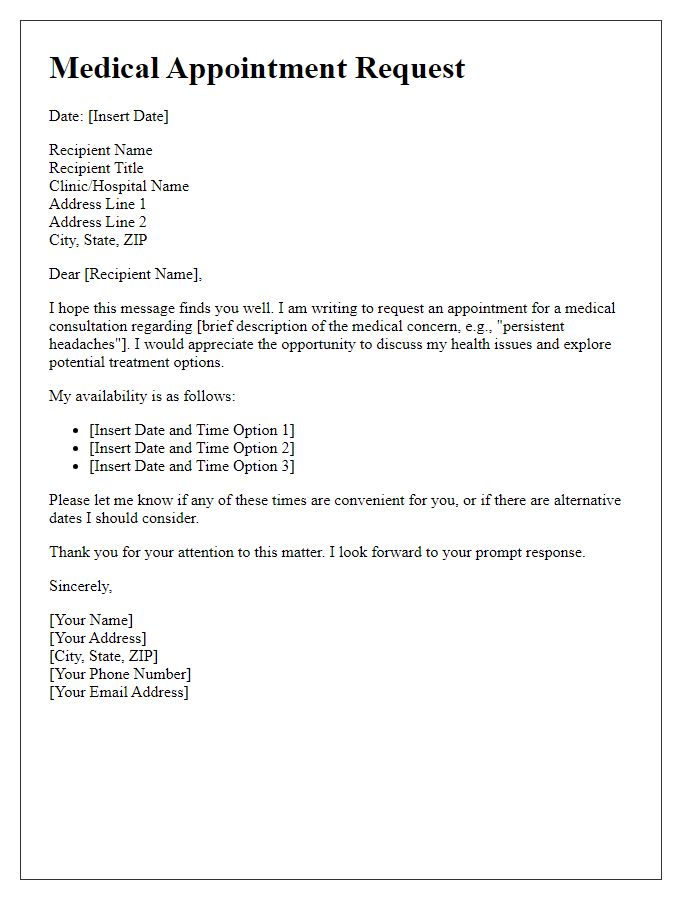
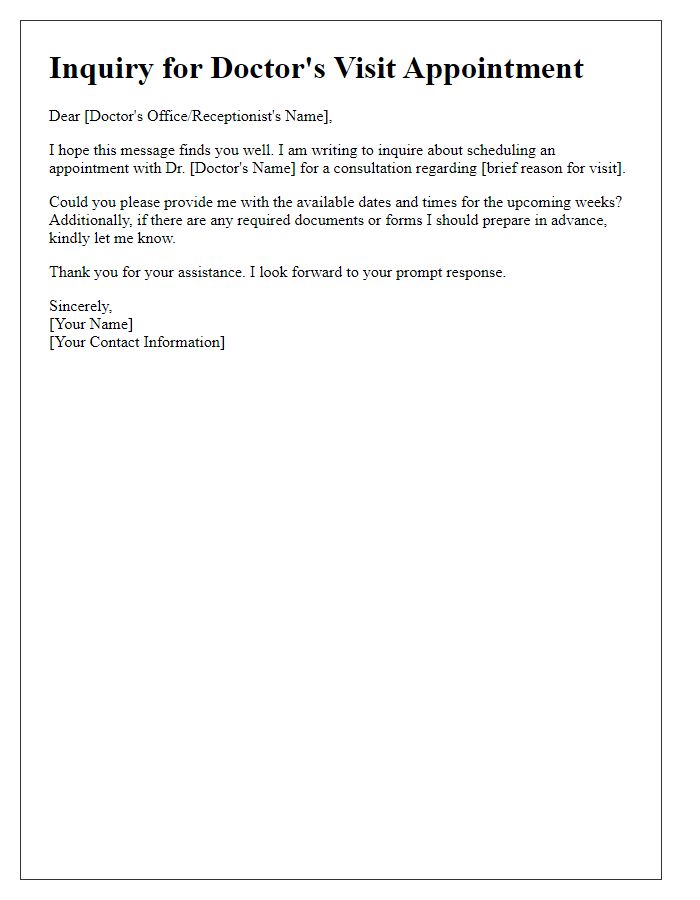
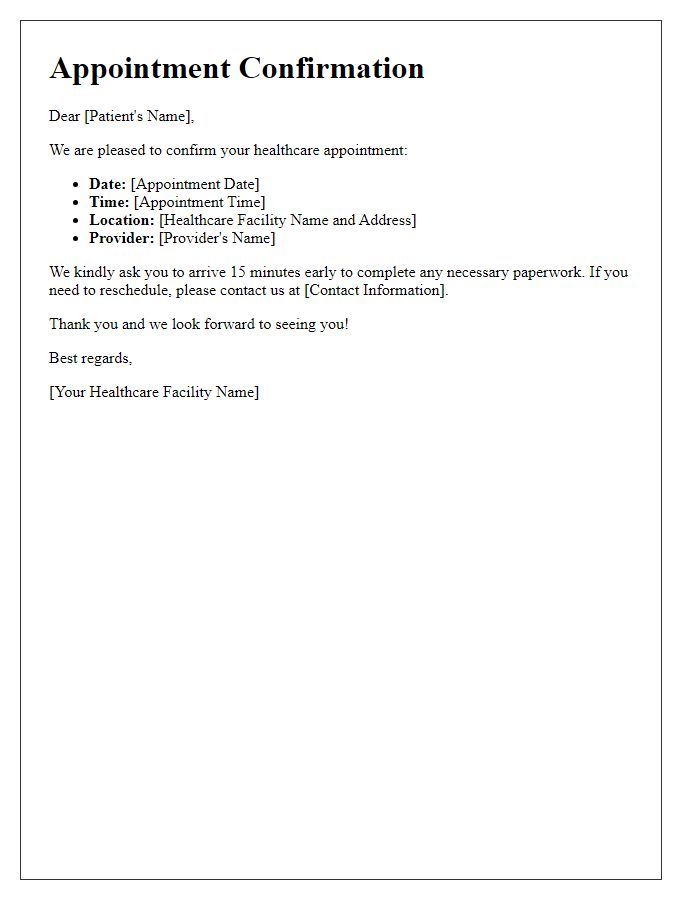
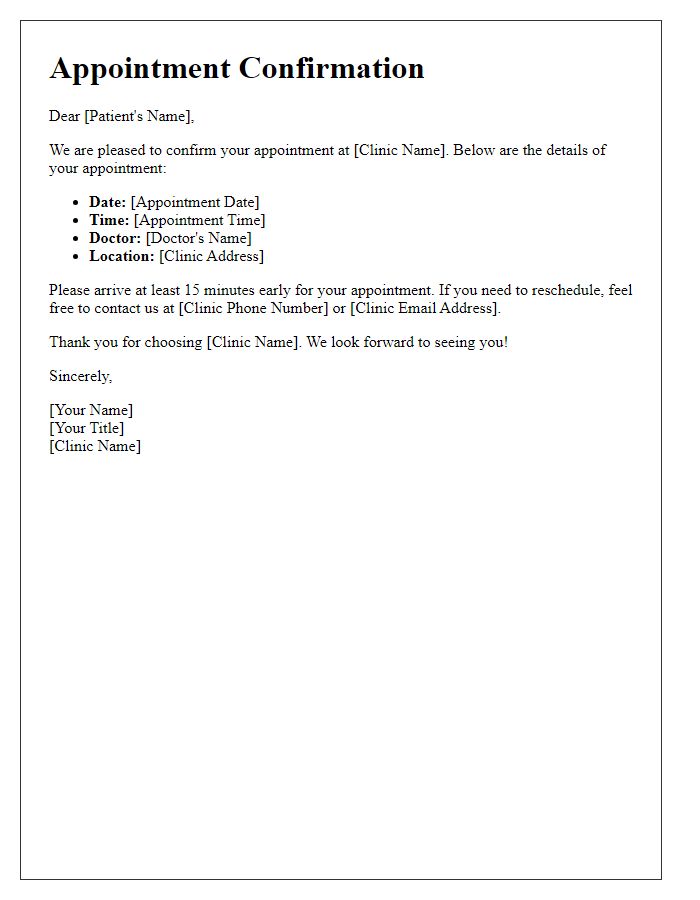
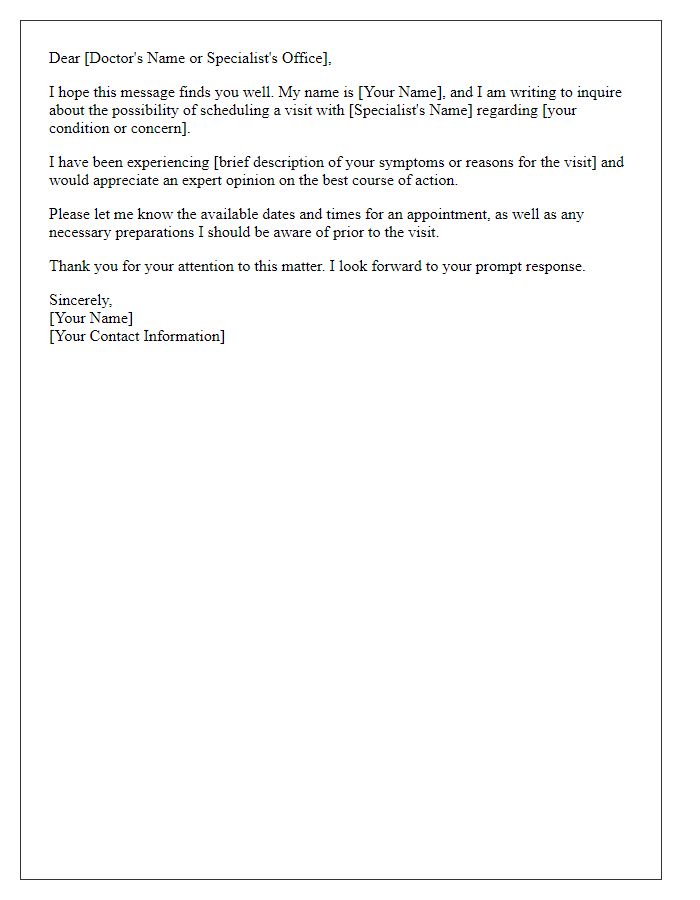
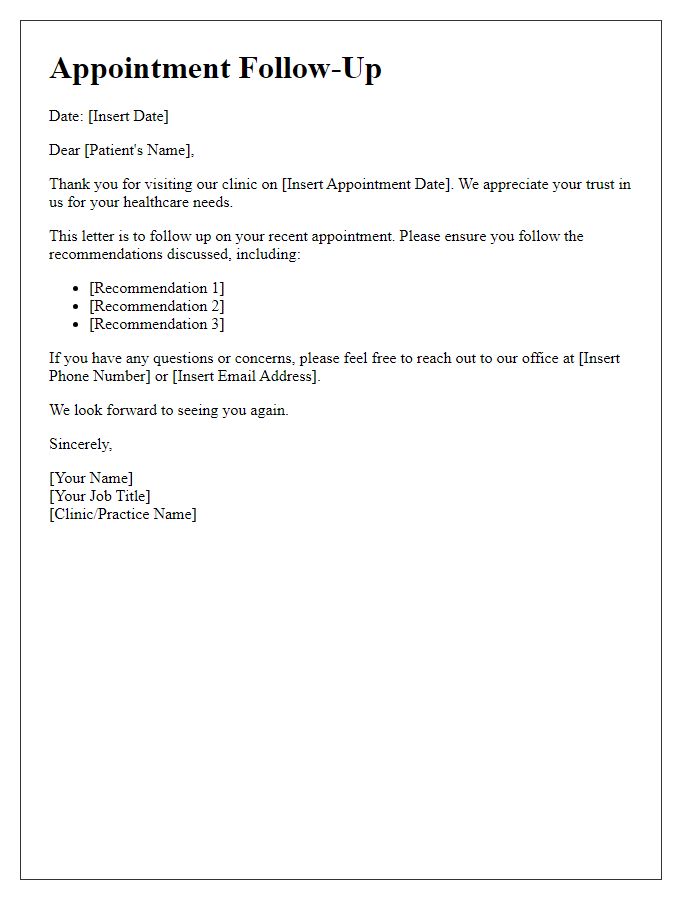
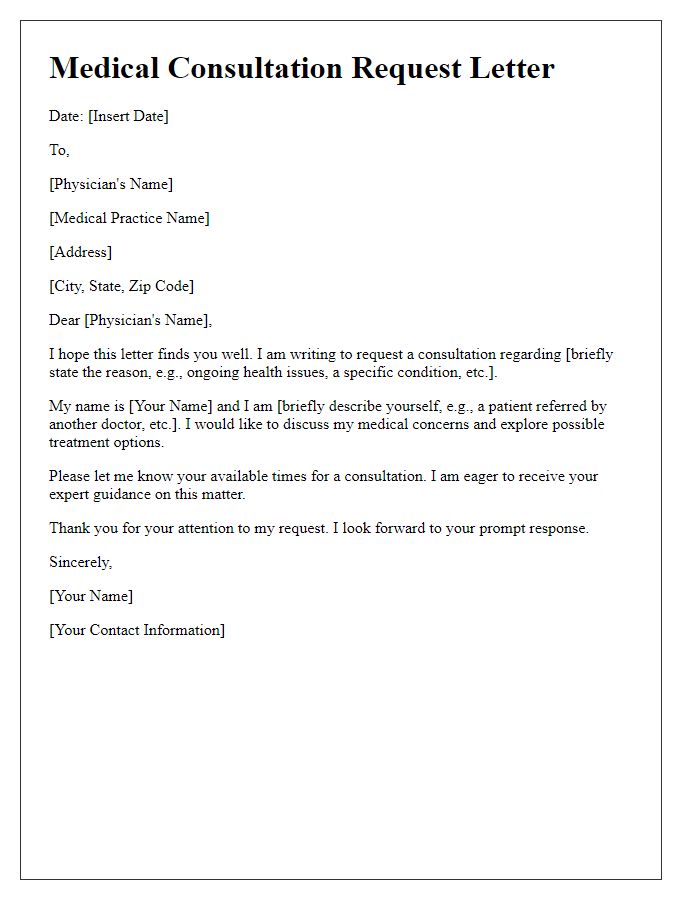
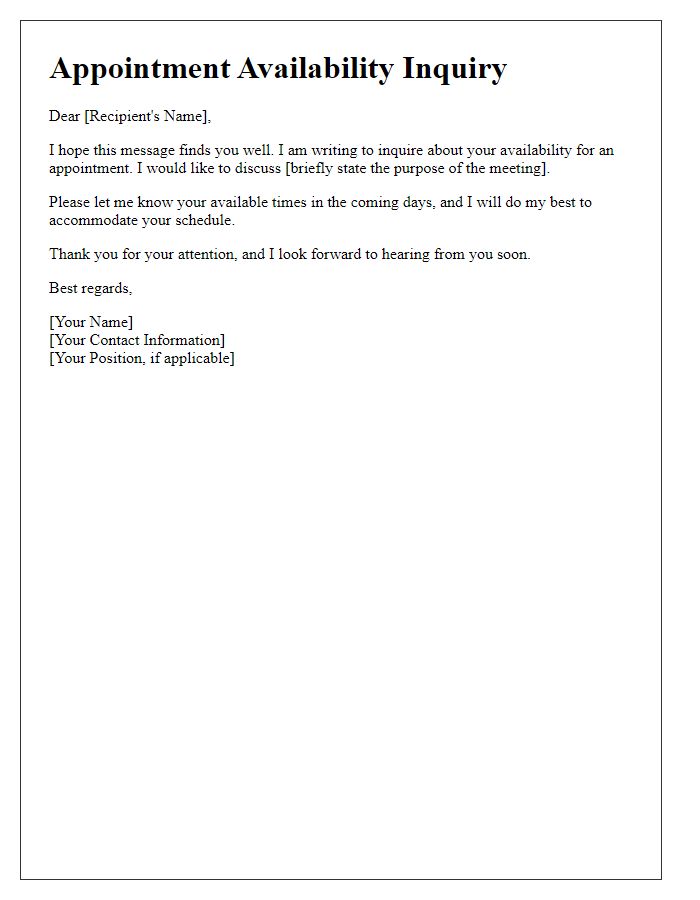
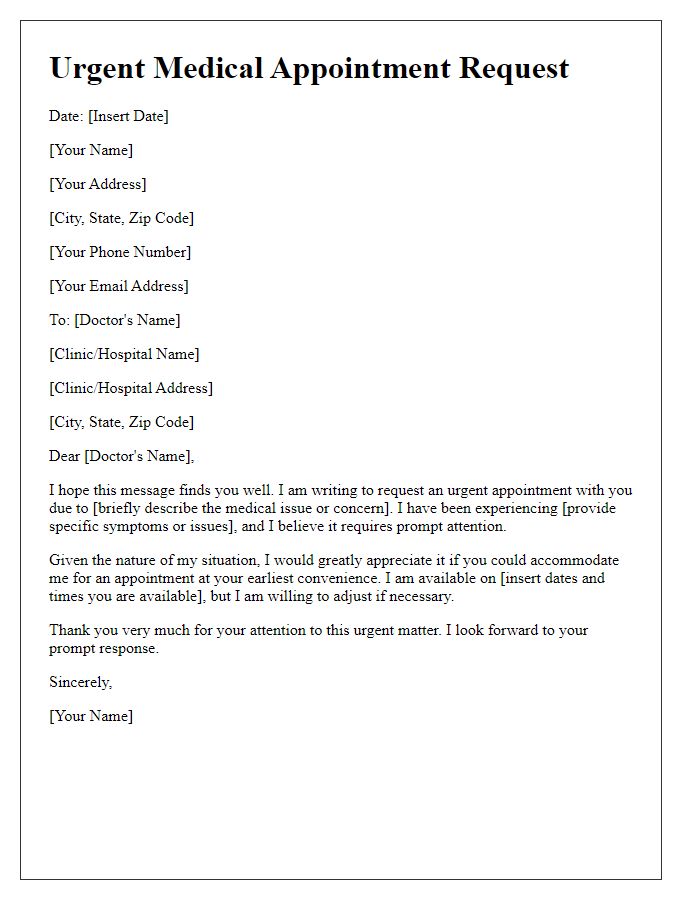
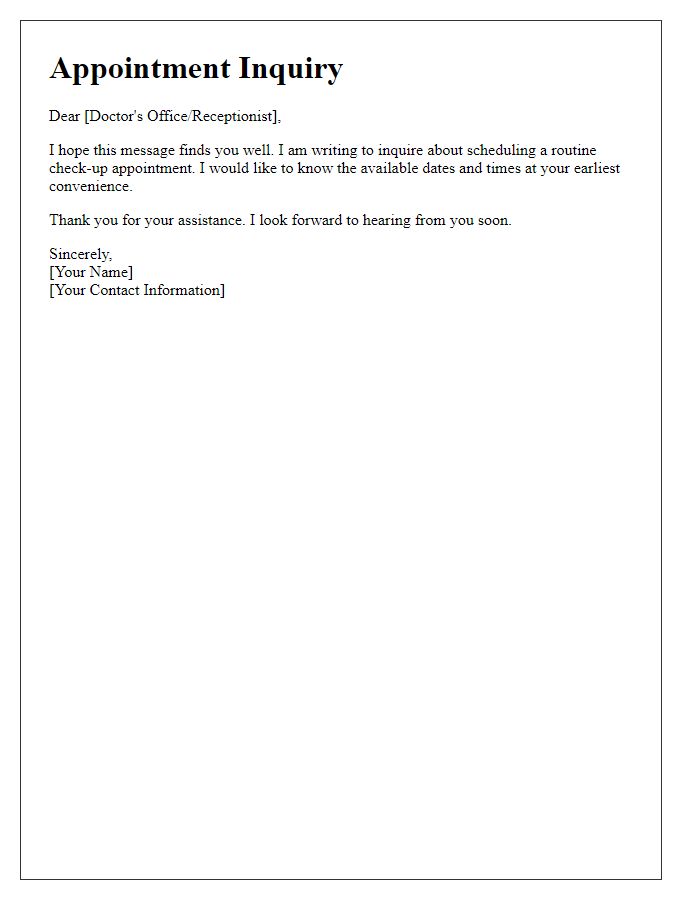


Comments